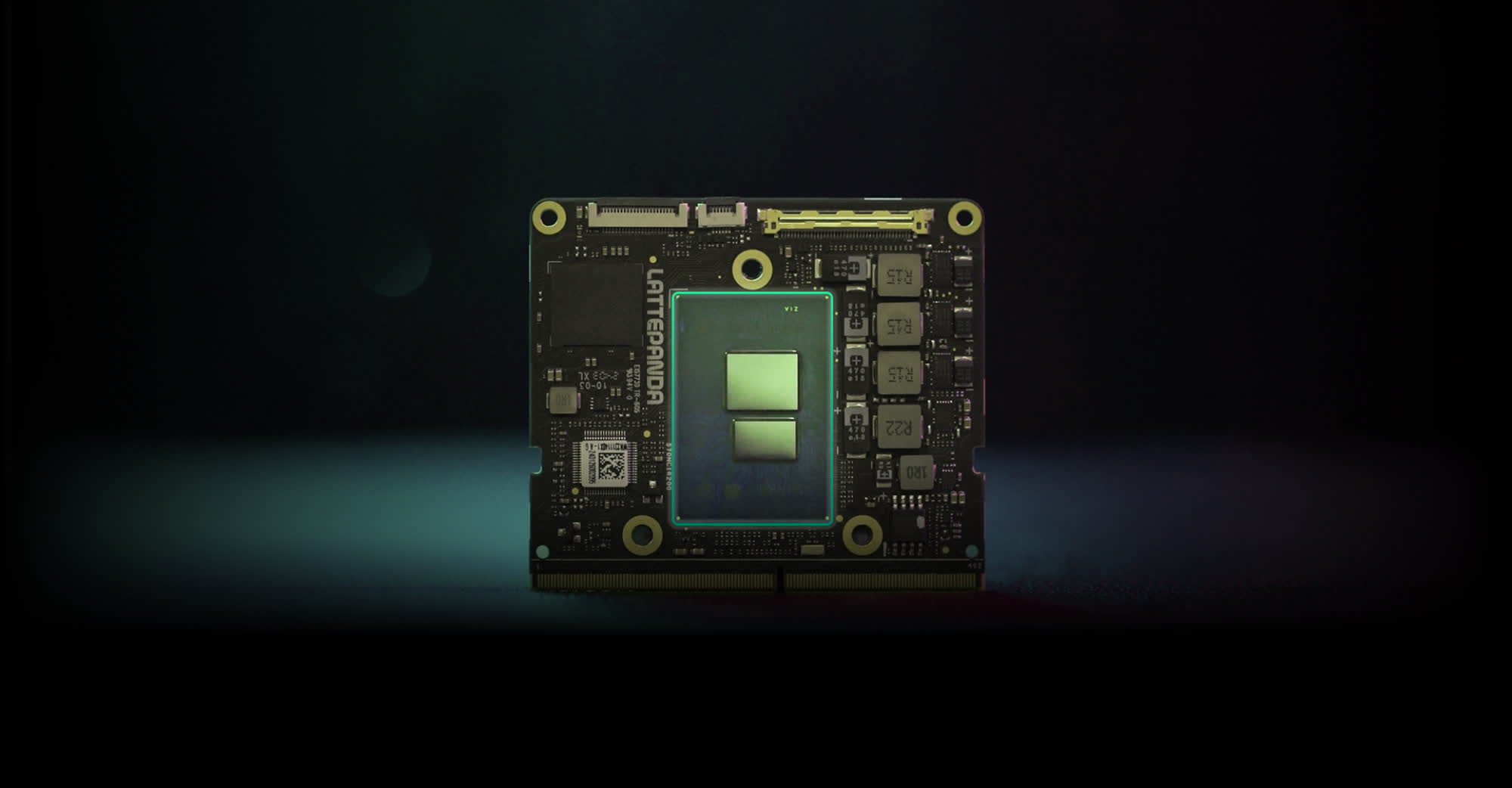In a nutshell: Single-board computer manufacturer LattePanda, based in China, recently unveiled its latest x86-based device. The LattePanda Mu is a small yet powerful compute module specifically designed as an alternative to the Raspberry Pi 5.

While the Raspberry Foundation uses Arm chips for its single-board computers and compute modules, LattePanda has consistently designed its products around Intel x86 chips. LattePanda devices generally come at a higher price point compared to Raspberry Pi boards, but they offer full compatibility with mainstream PC operating systems such as Windows 10 and various Linux distributions.
The latest addition to the Chinese company's lineup is the LattePanda Mu, a micro compute module designed to accommodate unique solutions and offer flexibility for a wide range of hardware projects. Unlike traditional single-board computers like the Raspberry Pi, a compute module is much smaller, providing only the essential components necessary for building electronic devices.
Key specifications of the $99 LattePanda Mu include the Intel N100 CPU, a low-power processor featuring four computing cores (without Hyperthreading) running at 3.4GHz. Additionally, the board is equipped with 8GB of LPDDR5 ECC RAM and a 64GB eMMC 5.1 card for basic storage requirements. LattePanda claims that the N100 chip delivers more than double the performance of the Raspberry Pi 5.
Additional specifications include "rich" expansion pins for HDMI/DisplayPort ports, numerous USB 2.0/3.2 ports, nine PCIe 3.0 lanes, two SATA 3.0 ports, and more. The board offers a configurable TDP ranging from 6W to 35W, while LattePanda provides both a Lite carrier board and a Full-Function evaluation carrier board to connect the board's pins to all supported ports and interfaces.
Hardware developers and hobbyists can choose between passive or active cooling solutions. The company also offers all carrier board files and libraries under an open-source license. LattePanda Mu's flexibility is showcased through various hardware solutions designed around a full compute module+carrier board setup.
The LattePanda Mu board has the potential to be used in constructing a low-power NAS carrier or even a high-performance NAS equipped with a 10GbE network interface. Leveraging the encryption/decryption performance of the Intel N100 CPU, the board could also serve as a router, a switch, or other network-centric solution.
LattePanda Mu's support for PCIe, MXM, or other external GPU standards makes it a potential, albeit low-power, gaming solution, according to the company. By linking multiple LattePanda Mu boards to a custom-designed carrier board, more complex hardware projects such as Kubernetes or virtualization (Proxmox) clusters can be realized.
LattePanda Mu is a Raspberry Pi-like microboard that can work as an x86 mini-computer